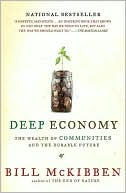Category Books
- Fiction Books & Literature
- Graphic Novels
- Horror
- Mystery & Crime
- Poetry
- Romance Books
- Science Fiction & Fantasy
- Thrillers
- Westerns
- Ages 0-2
- Ages 3-5
- Ages 6-8
- Ages 9-12
- Teens
- Children's Books
- African Americans
- Antiques & Collectibles
- Art, Architecture & Photography
- Bibles & Bible Studies
- Biography
- Business Books
- Christianity
- Computer Books & Technology Books
- Cookbooks, Food & Wine
- Crafts & Hobbies Books
- Education & Teaching
- Engineering
- Entertainment
- Foreign Languages
- Game Books
- Gay & Lesbian
- Health Books, Diet & Fitness Books
- History
- Home & Garden
- Humor Books
- Judaism & Judaica
- Law
- Medical Books
- New Age & Spirituality
- Nonfiction
- Parenting & Family
- Pets
- Philosophy
- Political Books & Current Events Books
- Psychology & Psychotherapy
- Reference
- Religion Books
- Science & Nature
- Self Improvement
- Sex & Relationships
- Social Sciences
- Sports & Adventure
- Study Guides & Test Prep
- Travel
- True Crime
- Weddings
- Women's Studies
Deep Economy: The Wealth of Communities and the Durable Future » (Reprint)

Authors: Bill McKibben
ISBN-13: 9780805087222, ISBN-10: 0805087222
Format: Paperback
Publisher: St. Martin's Press
Date Published: March 2008
Edition: Reprint
Author Biography: Bill McKibben
Bill McKibben is the author of ten books, including The End of Nature, The Age of Missing Information, and Enough: Staying Human in an Engineered Age. A former staff writer for The New Yorker, he writes regularly for Harper’s, The Atlantic Monthly, and The New York Review of Books, among other publications. He is a scholar in residence at Middlebury College and lives in Vermont with his wife, the writer Sue Halpern, and their daughter.
Book Synopsis
"Masterfully crafted, deeply thoughtful and mind-expanding."—Los Angeles Times
In this powerful and provocative manifesto, Bill McKibben offers the biggest challenge in a generation to the prevailing view of our economy. Deep Economy makes the compelling case for moving beyond "growth" as the paramount economic ideal and pursuing prosperity in a more local direction, with regions producing more of their own food, generating more of their own energy, and even creating more of their own culture and entertainment. Our purchases need not be at odds with the things we truly value, McKibben argues, and the more we nurture the essential humanity of our economy, the more we will recapture our own.
The New York Times - Lance Morrow
It would be unwise to dismiss McKibben's ideas as pipe dreams or Luddism. He makes his case on anecdotal, environmental, moral and, as it were, aesthetic grounds. An attentive, widely traveled writer and environmentalist, McKibben cites the success of local projects around the world, from a rabbit-raising academy in China to a Guatemalan cooperative that manufacturers farm machinery from old bicycles. He defends his "economics of neighborliness" against the charge that it is "sentimental, nostalgic, some Norman Rockwell old-town-green fantasy." In fact, he insists: "Given the trend lines for phenomena like global warming and oil supply, what's nostalgic and sentimental is to insist that we keep doing what we're doing now simply because it's familiar. The good life of the high-end American suburb is precisely what s doing us in." His alternative, an intelligent, socially responsible, nonideological localism—essentially a readjustment downward of material expectations and therefore of our "hyperindividualistic" economic metabolisms—"might better provide goods like time and security that we're short of." People, he thinks, are "overliberated…We need to once again depend on those around us for something real."
Table of Contents
After Growth 5
The Year of Eating Locally 46
All for One, or One for All 95
The Wealth of Communities 129
The Durable Future 177
Afterword 227
Notes 233
Acknowledgments 248
Index 251
Subjects
 Economics
Economics  Economic Development
Economic DevelopmentNonfiction
 Social Sciences
Social Sciences  General & Miscellaneous
General & MiscellaneousNonfiction
 All Nonfiction
All Nonfiction  Economics & Politics
Economics & PoliticsPolitical Books & Current Events Books
 Economics & Politics
Economics & Politics  Economic Development
Economic DevelopmentPolitical Books & Current Events Books
 All Politics
All Politics  Economics & Politics
Economics & PoliticsScience & Nature
 Social Sciences
Social Sciences  General & Miscellaneous
General & MiscellaneousSocial Sciences
 General & Miscellaneous
General & Miscellaneous  Development
DevelopmentNonfiction
 Politics & Current Affairs
Politics & Current Affairs  Economics & Politics
Economics & PoliticsNonfiction
 Politics & Current Affairs
Politics & Current Affairs  All Politics
All Politics
